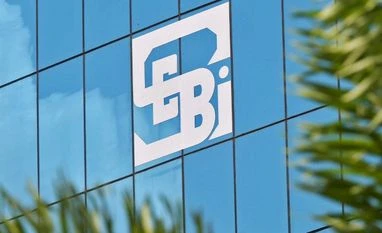Last year, Sebi whole-time member Prashant Saran directed repayment of Rs 49,100 crore to investors in these PACL schemes. A Supreme Court order earlier this year appointed two retired judges to recover that money. Last month, the Securities Appellate tribunal (SAT) upheld Saran’s order, after an appeal against it by PACL.
The regulator's 17-year chase of the firm heated up after the Supreme Court cleared a hurdle for Sebi action two years ago. On June 14, 2013, Sebi issued show-cause notices to PACL, its founder Nirmal Singh Bhangoo, and its past and present directors. (A show-cause notice asks the recipient to produce satisfactory grounds for application of or exemption from a procedure or penalty.) It took Sebi another 14 months to complete enquiry and proceedings as the accused sought clarifications, hearings, and adjournments.
During this period, PACL continued to raise money. Now, the Tuesday’s order is on the money raised after the original show-cause notice was issued.
| THE PACL CASE |
|
An ordinance giving Sebi powers to recover money owed to it was announced in July 2013. It was repromulgated and eventually passed by parliament as law in August 2014.
Started in 1996 by former Peerless group agent Bhangoo, PACL came on the regulator’s radar two years later, when the collective investment schemes rules were announced.
PACL offered two major plans for a land parcel: A cash-down payment plan and an instalment plan. PACL says it gets customers to invest in land in undeveloped areas. The company says it develops this land.
PACL also offered an exit option to customers. Most customers exited the plans. This convinced the regulator the plans were money circulation schemes. But, in 2003, the Rajasthan High Court said collective-investment-scheme rules did not apply to PACL schemes. With most of PACL’s rivals cornered by the regulator, it had a near monopoly. In February 2013, the Supreme Court set aside the Rajasthan High Court order. But by then, PACL had already enlisted more than 58.5 million customers.
You’ve reached your limit of {{free_limit}} free articles this month.
Subscribe now for unlimited access.
Already subscribed? Log in
Subscribe to read the full story →

Smart Quarterly
₹900
3 Months
₹300/Month
Smart Essential
₹2,700
1 Year
₹225/Month
Super Saver
₹3,900
2 Years
₹162/Month
Renews automatically, cancel anytime
Here’s what’s included in our digital subscription plans
Exclusive premium stories online
Over 30 premium stories daily, handpicked by our editors


Complimentary Access to The New York Times
News, Games, Cooking, Audio, Wirecutter & The Athletic
Business Standard Epaper
Digital replica of our daily newspaper — with options to read, save, and share


Curated Newsletters
Insights on markets, finance, politics, tech, and more delivered to your inbox
Market Analysis & Investment Insights
In-depth market analysis & insights with access to The Smart Investor


Archives
Repository of articles and publications dating back to 1997
Ad-free Reading
Uninterrupted reading experience with no advertisements


Seamless Access Across All Devices
Access Business Standard across devices — mobile, tablet, or PC, via web or app
)

